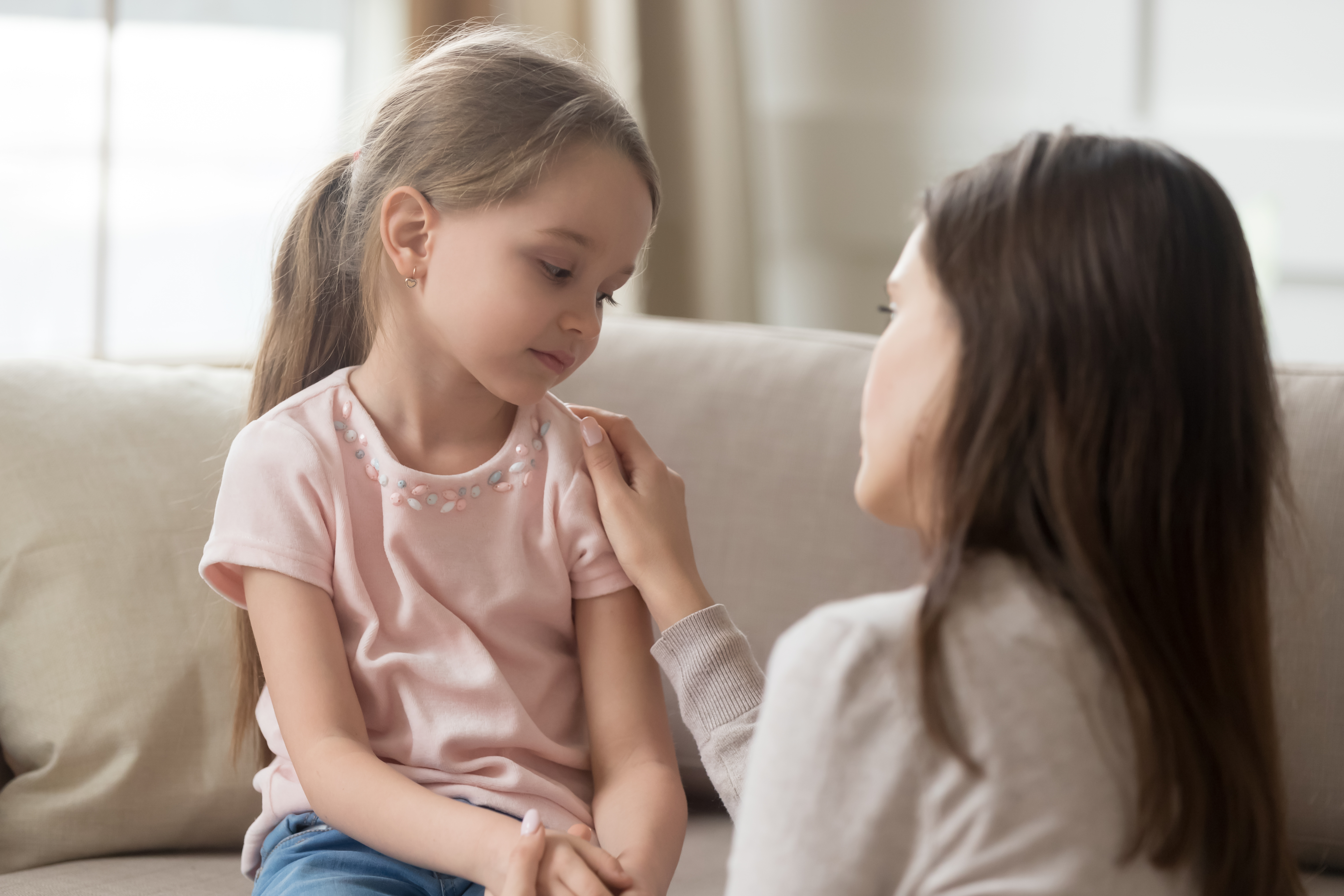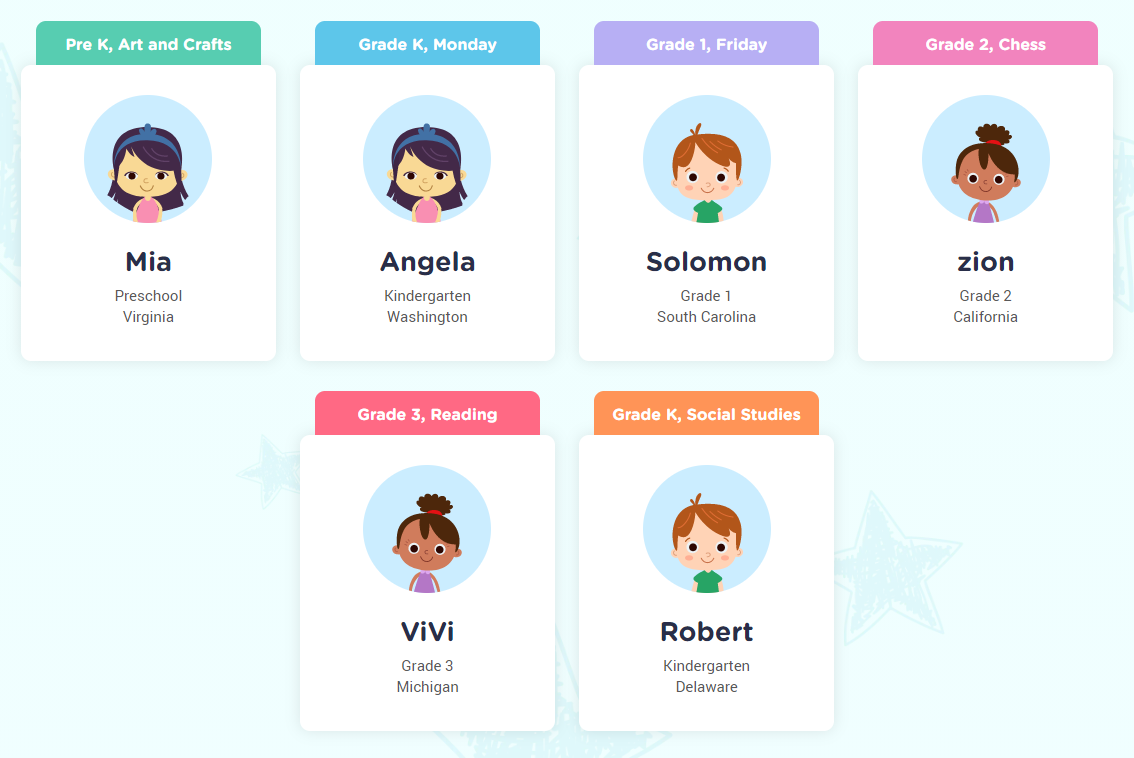Understanding communities Worksheets for Ages 4-7
6 filtered results
-
From - To
Explore our engaging "Understanding Communities" worksheets designed for children aged 4-7. These resources introduce young learners to the concept of communities, helping them discover different roles, places, and relationships that shape their surroundings. Through interactive activities, kids will enhance their critical thinking and social awareness while developing essential skills. Our user-friendly worksheets encourage creativity, observation, and curiosity, making learning about the community fun and effective. Perfect for both classroom use and at-home learning, these worksheets aim to foster a sense of belonging and understanding in young minds. Download now and help your child connect with the world around them!
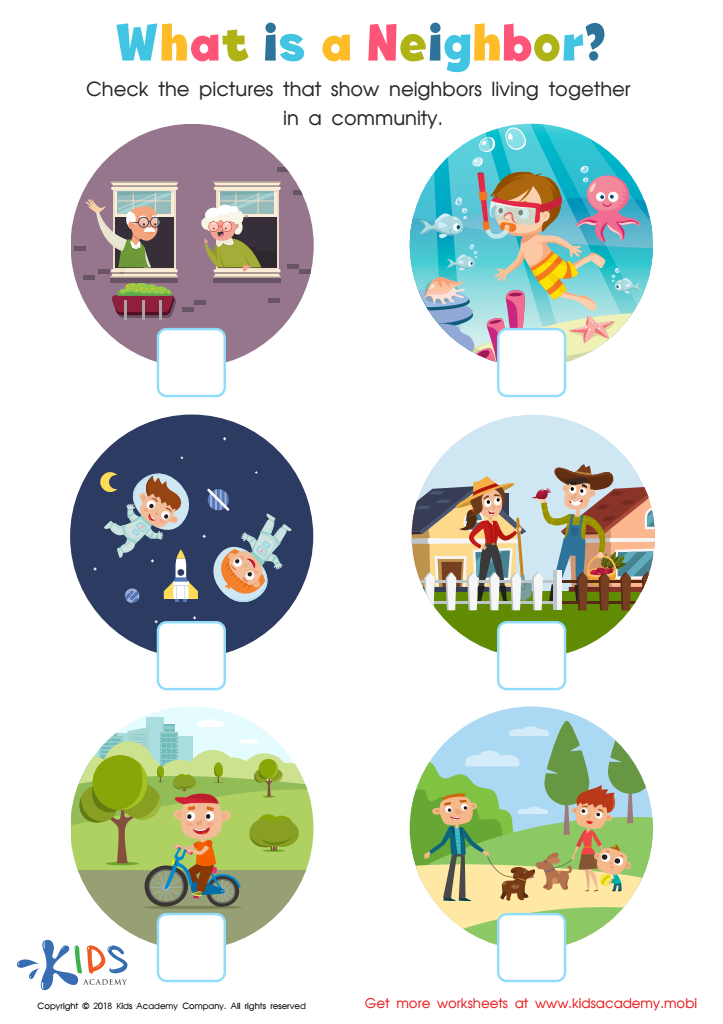

What is a neighbor Worksheet
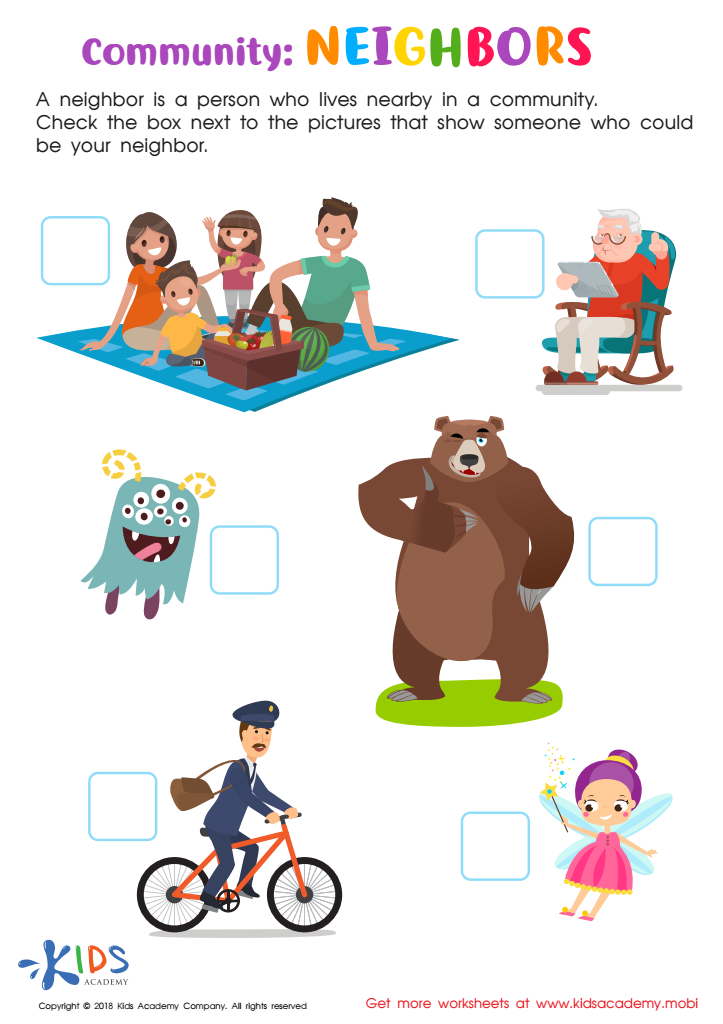

Community: Neighbors Worksheet
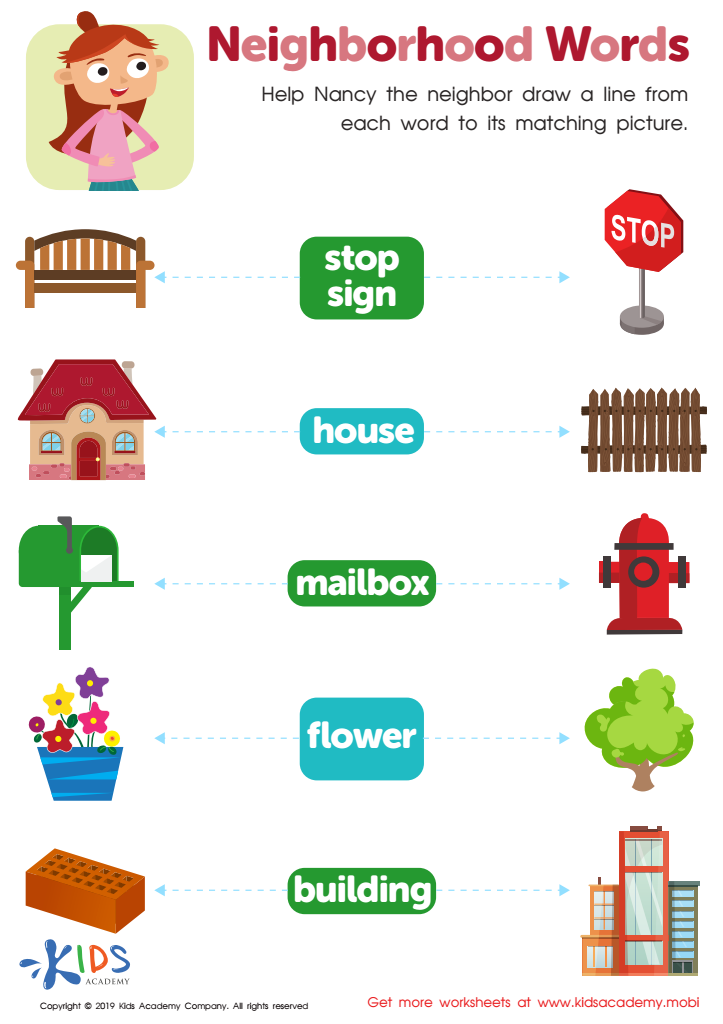

Neighborhood Words Worksheet
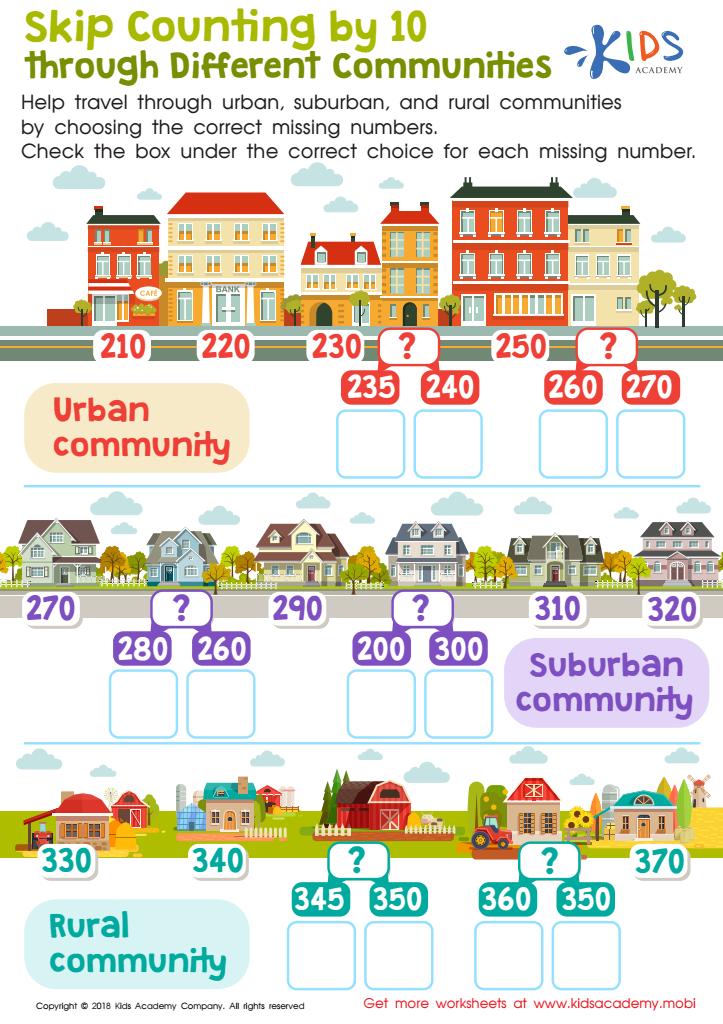

Skip Counting by 10 through Different Communities Worksheet
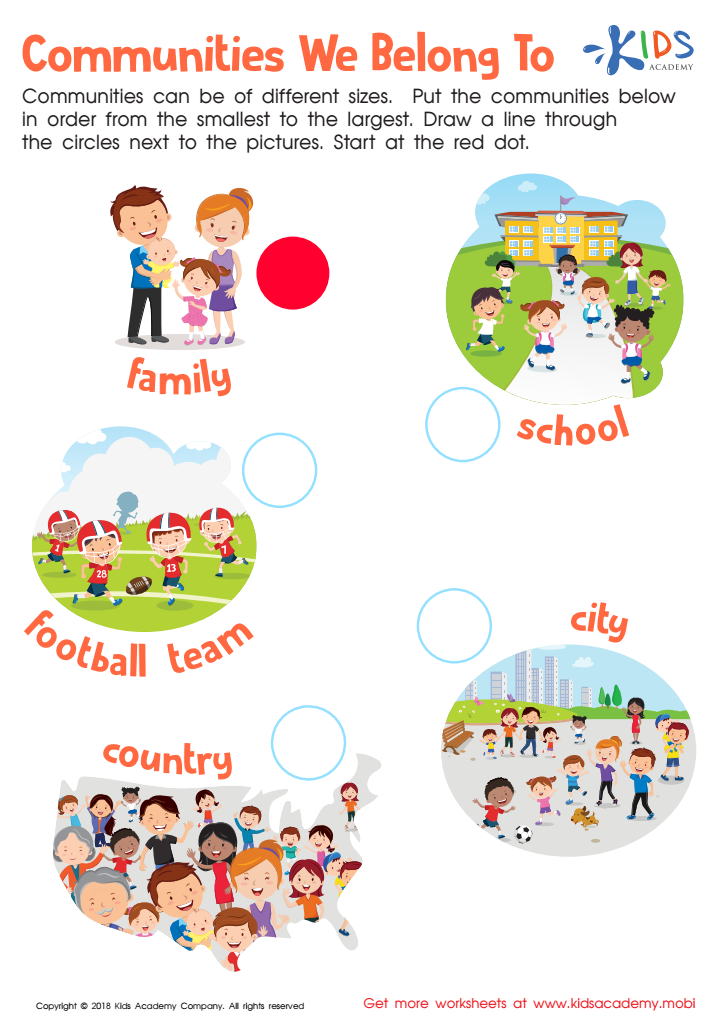

Communities We Belong to Worksheet
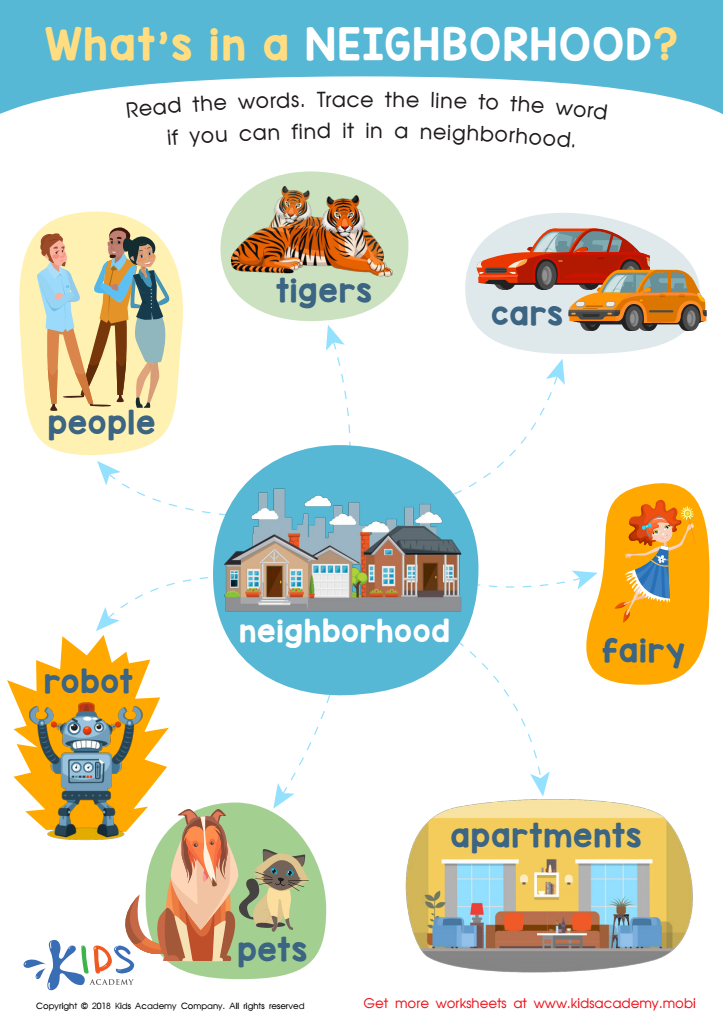

What's in a Neighborhood? Worksheet
Understanding communities is crucial for children aged 4-7 as it lays the foundation for their social awareness and interpersonal skills. At this developmental stage, children are becoming increasingly aware of their surroundings and the people in them. Teaching them about communities not only enhances their understanding of diversity but also fosters empathy and inclusion.
When parents and teachers engage children in discussions about different types of communities—be it neighborhoods, schools, or cultural groups—they help them appreciate various perspectives and backgrounds. This awareness promotes acceptance and respect for differences, which is essential in our multicultural society.
Additionally, understanding communities empowers children to recognize their roles within them. They learn about cooperation, citizenship, and the importance of contributing positively, whether through acts of kindness or community service.
Incorporating community understanding into curricula or family discussions also nurtures critical thinking skills, allowing children to make connections between themselves and the world around them. Ultimately, parents and teachers play a vital role in shaping thoughtful, informed young individuals who are well-equipped to thrive in a diverse society, promoting harmony and understanding wherever they go.
 Assign to My Students
Assign to My Students


.jpg)



